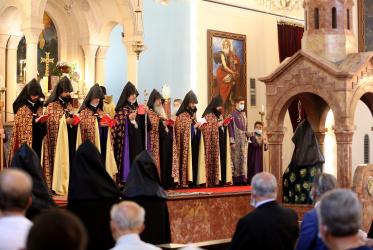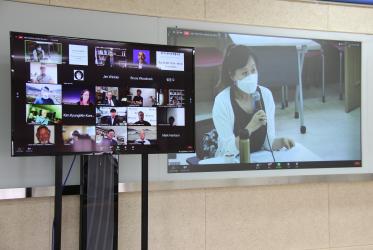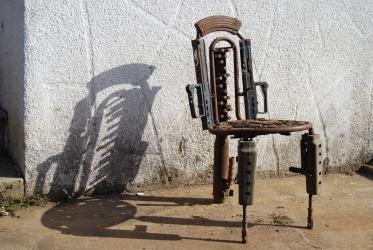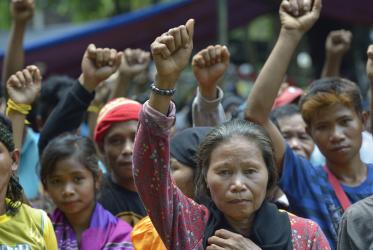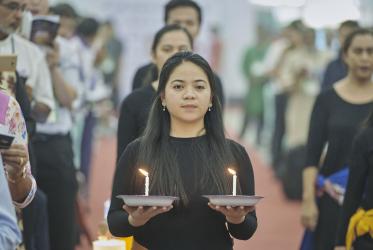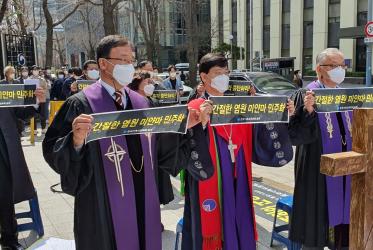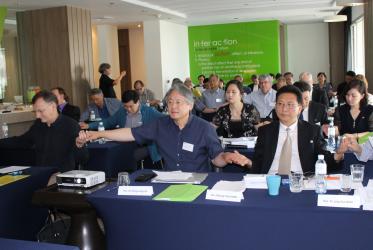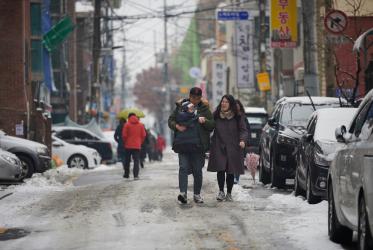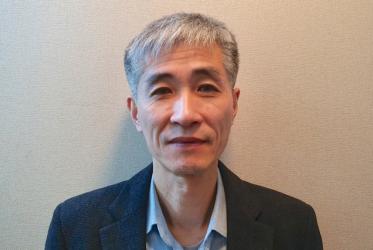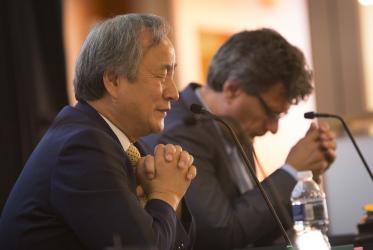Displaying 81 - 100 of 462
WCC offers prayer during Japanese peace conference
11 March 2021
Peace and unity on the Korean Peninsula matters globally
25 February 2021
"Light of Peace" book now available in Korean
06 January 2021
Rev. Shin Seung-min: “We want to create hope, not despair”
22 December 2020
Bishop Hee-Soo Jung: “Prayer is a radical action”
11 December 2020


